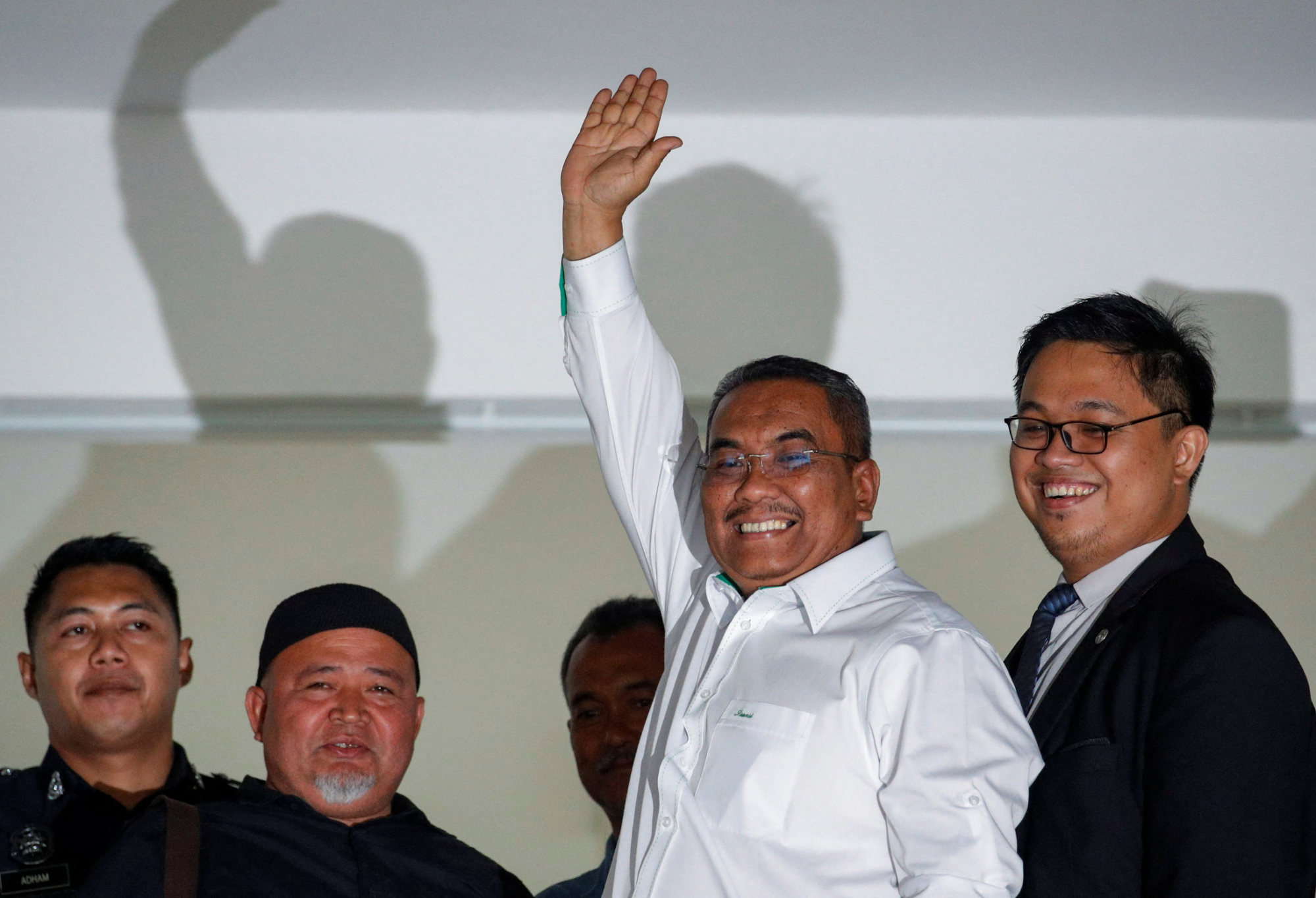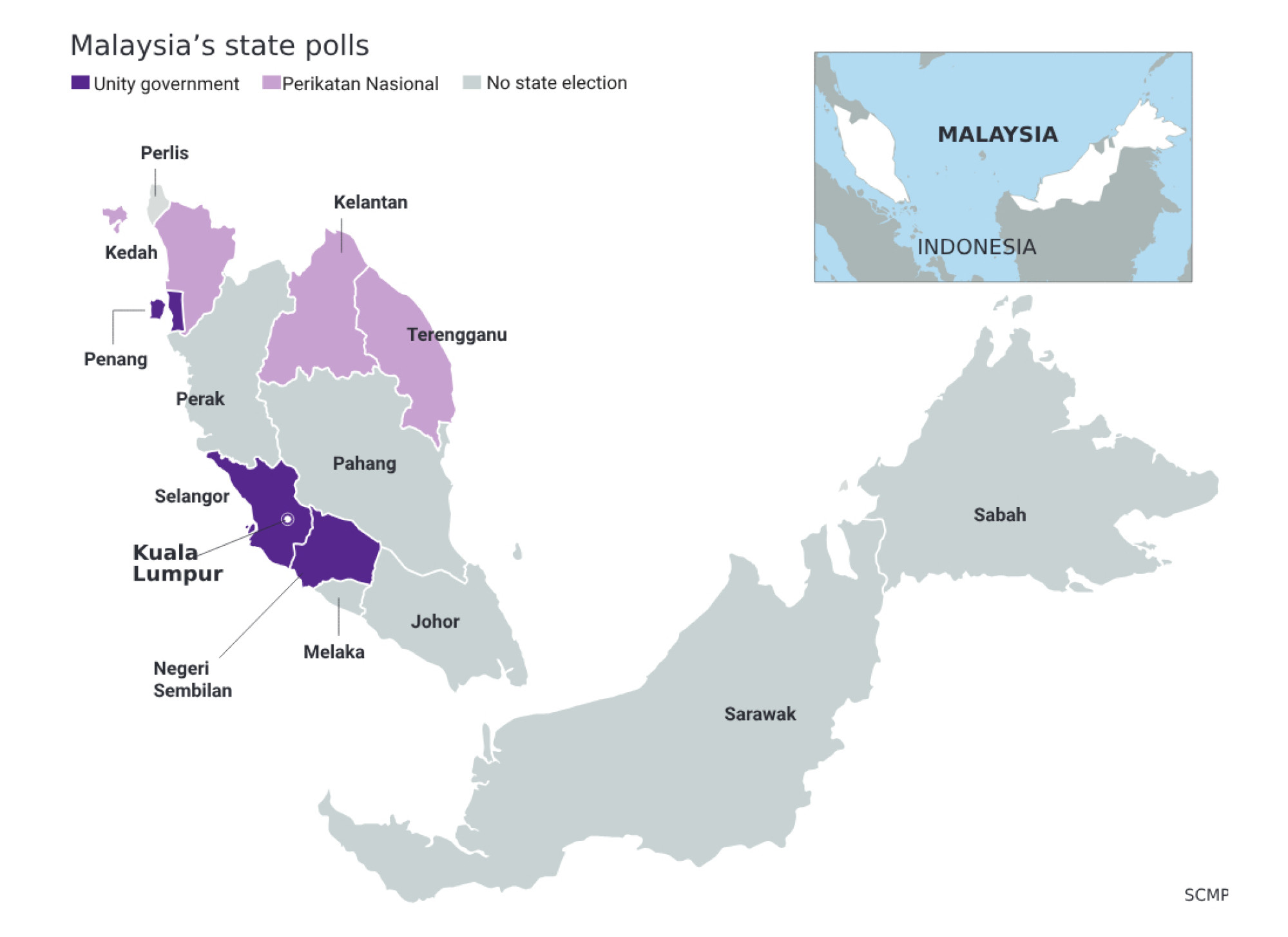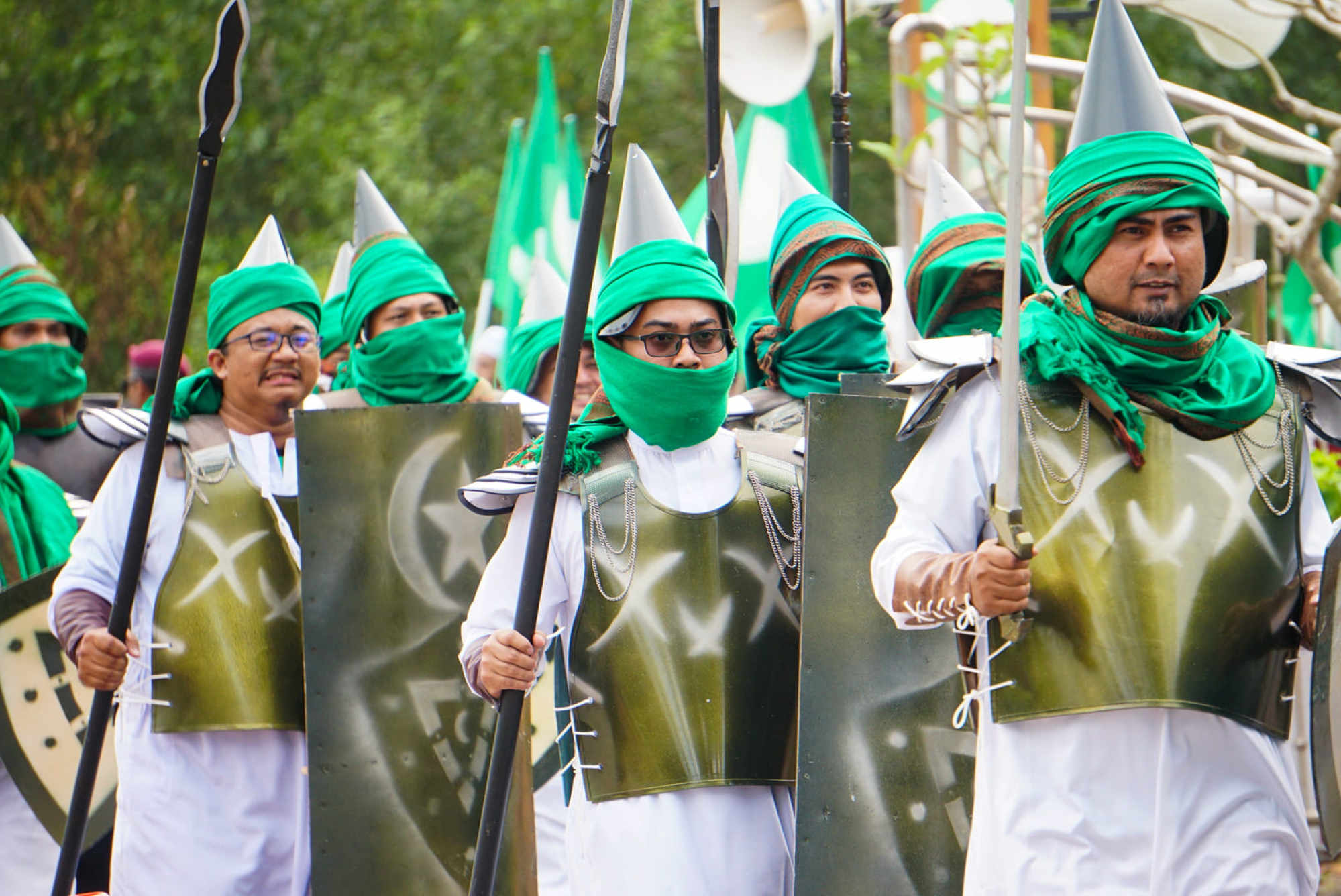
Malaysia state polls: could TikTok domination give Perikatan Nasional the edge?
- TikTok, used by an estimated half of Malaysians, is a connection point in the Malay heartlands to culture wars and criticism of Anwar’s government
- Experts say Anwar could be in for a bruising at the polls if the opposition wins the social media battle, with PH’s strategy criticised as ‘all over the place’
On stage in the leafy upmarket neighbourhood of Bukit Antarabangsa, Fahmi, who is campaigning for the government, told candidates not to be disheartened by the opposition’s winning social media strategy – particularly TikTok.
The video pulled 16 million likes, owing to the platform’s feature of allowing viewers to like a live video several times.

The platform is a connection point in the Malay heartlands to criticism of Anwar’s government, as well as culture wars stoking over everything from the position of Islam in daily life to what is shown in Malaysian cinemas.
If the opposition cuts through to those heartlands, experts say Anwar could be in for a bruising at the polls.
Pro-PN vlogger Nurpais Ismail hit back at allegations of juicing up social media reach.
“They [PH] cannot accept the fact that the people nowadays – on TikTok for example – are more interested in listening to PN leadership, especially Sanusi,” Nurpais said in his latest vlog across social media platforms.
Anwar’s PH – and its previous incarnations – once led the way in social media outreach in the blogging era of the early noughties. But experts say the coalition has dropped the ball with TikTok.
Instead, PH has had a combative relationship with the platform, with Fahmi summoning its Malaysian representatives during the first week on the job, claiming TikTok hosted “so much extremist and racist content”.
This Week in Asia was unable to reach the minister for comment despite several attempts.

TikTok’s policy on Government, Politician, and Political Party Account (GPPPA) prohibits political advertising, including the use of promotional tools available on the platform which is imposed at the account level.
“This means that accounts we identify as belonging to politicians and political parties have their access to advertising features turned off,” the platform said in its published policy on the matter.
Similarly, political accounts are restricted from TikTok’s monetisation features, preventing them from giving or receiving any money through the platform.
PN has, however, been openly buying ads on other platforms, including Meta’s Facebook and Google’s YouTube.

On YouTube, the party uses the platform’s skippable in-stream ads that play before videos, carrying election messages on the rising cost of living and stagnant wages.
Anwar and PH are more comfortable on Twitter, their platform of choice in two successful elections in 2018 and 2022, and are backed up by government media.
Political analyst James Chin criticised PH’s social media strategy as uncoordinated and “all over the place”.
“Even PN’s lousiest video to me is better than a PH video,” Chin said. “The question is how come they did not learn the lesson from the November 2022 election, when it was obvious that social media plays an important role among the young Malay voters.”
Social media strategist Zulfadzli Halim played down the impact of PN messaging after losing several prominent opinion leaders.
“They also have no new materials and are left repeating the same talking points,” he said, mostly on the cost-of-living issue.

